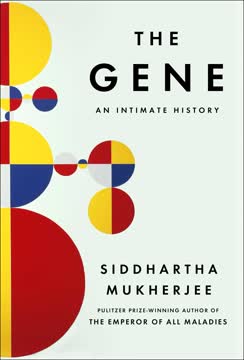重点摘要
1. 免疫系统:你身体的复杂防御网络
免疫系统不仅仅是让你咳嗽消失的工具。它与身体几乎所有其他过程密不可分——虽然它对维持生命至关重要,但它也可能是导致你过早死亡的部分,可能是因为失效或过度活跃。
庞大的网络。 免疫系统是一个由器官、细胞和蛋白质组成的复杂网络,它们共同保护你的身体免受有害入侵者的侵害。它不仅仅是一个单一实体,而是一个遍布全身的复杂系统。
- 关键组成部分:
- 淋巴结
- 骨髓
- 胸腺
- 脾脏
- 白细胞(如T细胞、B细胞、巨噬细胞)
- 抗体
平衡是关键。 免疫系统必须在足够强大以抵御病原体和足够调节以避免攻击自身之间保持微妙的平衡。这种平衡对于整体健康和长寿至关重要。
2. 先天免疫:对抗入侵者的前线防御
先天免疫系统的战士已经在你的一生中杀死了数十亿的敌人和寄生虫,并且准备杀死更多。
第一道防线。 先天免疫系统是你身体对威胁的即时反应。它是非特异性的,意味着它不区分不同类型的病原体,但会迅速行动以遏制和消除潜在威胁。
先天免疫的关键组成部分:
- 物理屏障:皮肤、粘膜
- 化学屏障:胃酸、唾液和泪液中的酶
- 细胞反应:巨噬细胞、中性粒细胞、自然杀伤细胞
- 炎症反应:红肿、肿胀、发热和疼痛
时刻警惕。 这个系统始终处于活跃状态,巡逻身体以寻找任何危险迹象。它是你割伤或感染时引起即时反应(如炎症)的原因。
3. 适应性免疫:你身体的定向反应系统
适应性免疫系统“知道”每一个可能的入侵者。它的名字,它吃了什么早餐,它最喜欢的颜色,它最亲密的希望和梦想。
精确打击。 适应性免疫系统就像一支高度专业化的军事力量。它制造定制的武器(抗体)来对抗特定的入侵者,并记住它们以备将来使用。
适应性免疫的关键特征:
- 特异性:针对特定病原体
- 记忆性:记住过去的感染以便更快地应对未来的感染
- 适应性:能够应对新的威胁
时间与精确。 虽然反应速度比先天免疫慢,但适应性免疫系统一旦激活,就非常精确和高效。它负责长期免疫,是疫苗工作原理的基础。
4. 微生物群:你身体的有益微生物生态系统
你的身体想要摆脱一些但不能,不得不学会与它们共存,其他的是中性的,而一大群则直接对你的健康有益。这些共生微生物群落对你的生存和健康与任何器官一样重要。
共生关系。 人体内居住着数万亿微生物,统称为微生物群。这些微生物在消化、免疫和整体健康中起着至关重要的作用。
关于微生物群的关键点:
- 位置:主要在肠道,但也存在于皮肤和其他区域
- 多样性:数百种细菌、真菌和病毒
- 功能:帮助消化、产生维生素、训练免疫系统
平衡至关重要。 健康的微生物群是多样且平衡的。通过抗生素、不良饮食等破坏这种平衡可能导致各种健康问题,包括免疫力减弱。
5. 自身免疫性疾病:当免疫系统攻击自身
自身免疫性疾病并不是随便发生的。对大多数人来说,它们是一个巨大的坏运气。
误认身份。 在自身免疫性疾病中,免疫系统错误地将健康细胞识别为外来入侵者并攻击它们。这可能导致影响身体各个部位的多种疾病。
常见的自身免疫性疾病:
- 类风湿性关节炎
- 1型糖尿病
- 多发性硬化症
- 狼疮
- 银屑病
复杂的原因。 自身免疫性疾病的确切原因尚不完全清楚,但它们可能涉及遗传易感性和环境因素的结合。管理这些疾病通常涉及抑制或调节免疫反应。
6. 过敏:免疫系统的过度反应
过敏意味着免疫系统对可能并不那么危险的东西产生了巨大的过度反应。
超敏反应。 过敏发生在免疫系统对环境中的无害物质(过敏原)过度反应时。这种过度反应可能从轻微不适到危及生命的情况不等。
常见的过敏和症状:
- 花粉症:打喷嚏、流鼻涕、眼睛发痒
- 食物过敏:荨麻疹、肿胀、消化问题
- 昆虫叮咬过敏:肿胀、呼吸困难
- 过敏性休克:严重的、可能致命的过敏反应
不断发展的理解。 我们对过敏的理解仍在不断发展。最近的研究表明,早期接触潜在过敏原实际上可能有助于预防过敏,这挑战了以前关于避免接触的观点。
7. 增强免疫力:揭穿神话,促进健康
增强免疫系统是一个糟糕的主意,是那些试图让你购买无用东西的人使用的手段!
平衡,而非增强。 “增强”免疫系统的概念在很大程度上是一个神话。健康的免疫系统是关于平衡,而不是强度。过度活跃的免疫力可能和免疫力低下一样有害。
支持免疫健康的因素:
- 富含水果和蔬菜的均衡饮食
- 定期锻炼
- 充足的睡眠
- 压力管理
- 避免吸烟和过量饮酒
警惕快速解决方案。 大多数声称“增强”免疫力的产品缺乏科学证据。与其寻找奇迹补品,不如专注于支持免疫系统自然功能的整体健康和生活方式选择。
8. 压力与免疫:身心连接
在野外,压力通常与生存危险有关,比如一个闯入你领地的对手或一个想把你当作食物的捕食者。
进化遗留。 我们的压力反应作为一种生存机制进化,准备身体进行“战斗或逃跑”。然而,在现代生活中,慢性压力可能对免疫系统产生不利影响。
慢性压力对免疫的影响:
- 增加炎症
- 抑制免疫功能
- 更容易感染
- 伤口愈合速度减慢
身心连接。 通过冥想、锻炼和社交联系等技术管理压力可以对免疫功能产生积极影响。这突显了心理健康和身体健康在整体免疫中的重要联系。
最后更新日期:
FAQ
What's Immune: A Journey into the Mysterious System that Keeps You Alive about?
- Exploration of the Immune System: The book delves into the complexities of the human immune system, explaining how it protects us from various pathogens and diseases.
- Engaging Narrative Style: Philipp Dettmer uses relatable analogies and storytelling to make complex scientific concepts accessible to readers without a background in immunology.
- Connection to Modern Issues: It addresses contemporary health issues, including the rise of autoimmune diseases and the impact of the COVID-19 pandemic on our understanding of immunity.
Why should I read Immune by Philipp Dettmer?
- Understanding Health Better: The book provides essential knowledge about how the immune system functions, which can help readers make informed decisions about their health and wellness.
- Relevance to Current Events: With ongoing discussions around health, vaccines, and pandemics, this book offers valuable insights into how our immune system functions.
- Holistic Perspective: It connects the immune system to various aspects of health, disease, and lifestyle choices, helping readers appreciate the importance of maintaining a healthy immune system.
What are the key takeaways of Immune?
- Immune System Complexity: The immune system is described as "the most complex biological system known to humanity," with intricate interactions among various cells and proteins.
- Balance is Essential: A well-functioning immune system requires balance; it must be strong enough to fight infections but not so aggressive that it attacks the body itself.
- Role of Memory Cells: Memory cells play a crucial role in long-term immunity, allowing the body to remember past infections and respond more effectively to future encounters.
What are the best quotes from Immune and what do they mean?
- "Your immune system is not a singular thing.": This quote underscores the complexity of the immune system, highlighting its various components and their interconnections.
- "You are a biosphere, surrounded by invaders that want to get in.": This emphasizes the constant battle between our bodies and the myriad of microorganisms that inhabit our environment.
- "What doesn’t kill you doesn’t make you stronger.": This challenges the notion that exposure to pathogens always strengthens the immune system, highlighting the risks of excessive exposure.
How does the immune system work according to Immune?
- Defense Mechanisms: The immune system employs various defense mechanisms, including physical barriers, innate immunity, and adaptive immunity.
- Cellular Interactions: Key players include T cells, B cells, and macrophages, which communicate and coordinate their actions through signaling molecules called cytokines.
- Memory Formation: After an infection, the immune system creates memory cells that allow for a faster and more efficient response to future infections.
What is the Innate Immune System according to Immune?
- First Line of Defense: The Innate Immune System is the body's immediate response to pathogens, acting within seconds of an invasion.
- Generalized Response: It employs broad mechanisms to combat a wide range of pathogens, rather than targeting specific invaders.
- Key Components: Major players include Macrophages and Neutrophils, which actively engage and eliminate pathogens through various methods, including phagocytosis.
How does the Adaptive Immune System work according to Immune?
- Specificity and Memory: The Adaptive Immune System develops specific responses to pathogens and retains memory of past infections for faster responses in the future.
- Role of T Cells and B Cells: T Cells coordinate the immune response, while B Cells produce antibodies that target specific antigens.
- Activation Process: Activation requires two signals: recognition of an antigen by a T Cell and additional stimulation from a Dendritic Cell.
What is the Hygiene Hypothesis mentioned in Immune?
- Connection to Allergies: The Hygiene Hypothesis suggests that reduced exposure to microbes in modern, sanitized environments may lead to an increase in allergies and autoimmune diseases.
- Impact of Urbanization: As societies have become more urbanized and hygienic, the diversity of microbial exposure has decreased, potentially leading to an imbalance in immune responses.
- Need for Microbial Diversity: The hypothesis emphasizes the importance of maintaining a diverse microbiome for optimal immune function.
How do vaccines work according to Immune?
- Inducing Immune Response: Vaccines work by introducing a harmless component of a pathogen to stimulate the immune system.
- Memory Cell Formation: Vaccination leads to the production of memory cells, which provide long-term immunity.
- Types of Vaccines: There are various types of vaccines, including live-attenuated, inactivated, and subunit vaccines, each designed to provoke an immune response without causing disease.
What are Antibodies and their functions according to Immune?
- Specialized Proteins: Antibodies are proteins produced by B Cells that specifically bind to antigens, marking them for destruction.
- Multiple Functions: They can opsonize pathogens, neutralize toxins, and activate the complement system to enhance the immune response.
- Diverse Classes: There are different classes of antibodies (IgM, IgG, IgA, IgE), each serving unique roles in immune defense.
How does inflammation contribute to the immune response according to Immune?
- Universal Response: Inflammation is triggered by injury or infection, serving to contain pathogens and facilitate healing.
- Five Key Signs: The classic signs of inflammation include redness, heat, swelling, pain, and loss of function.
- Double-Edged Sword: While inflammation is essential for fighting infections, chronic inflammation can lead to various diseases and health issues.
How does Immune explain autoimmune diseases?
- Misguided Immune Response: Autoimmune diseases occur when the immune system mistakenly attacks the body's own cells.
- Role of Self-Antigens: The immune system can recognize self-antigens, leading to an inappropriate immune response.
- Complex Interactions: The development of autoimmune diseases involves complex interactions between genetic factors, environmental influences, and immune system responses.
评论
菲利普·德特默的《免疫》因其对复杂的人体免疫系统的通俗解释而备受赞誉。读者们欣赏德特默引人入胜的写作风格、比喻的运用以及色彩丰富的插图。这本书因其能够在不简化过度的情况下简化困难概念而受到好评,使其对普通人和具有科学背景的人都具有吸引力。许多评论者提到书中的幽默和引人入胜的叙述方式。尽管有些人觉得将细胞拟人化的做法令人不适,但大多数人认为这有助于理解。总体而言,这本书因其清晰、全面的免疫学概述而被广泛推荐。
Similar Books














